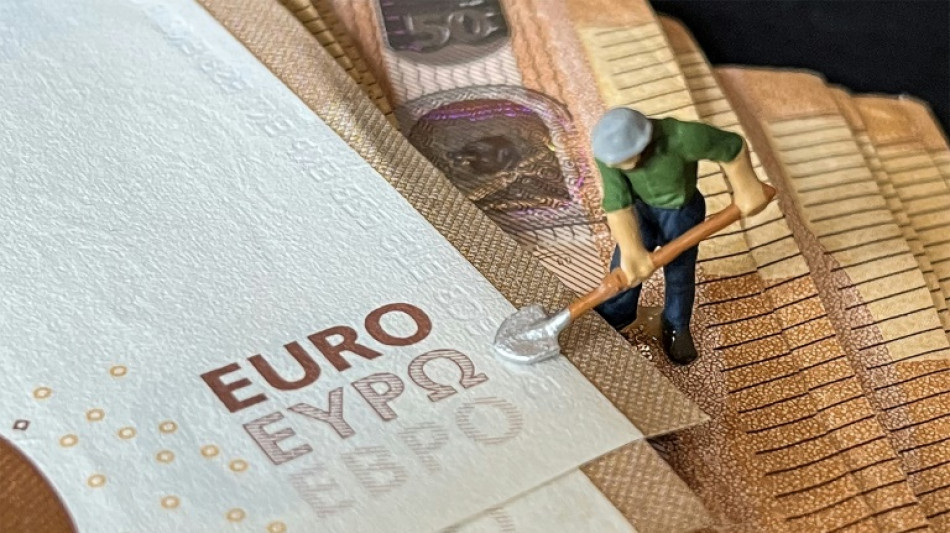
-
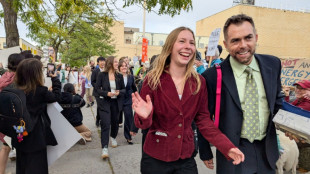 'A better future is possible': Youths sue Trump over climate change
'A better future is possible': Youths sue Trump over climate change
-
Redford's Sundance legacy 'beyond comprehension' for US filmmakers
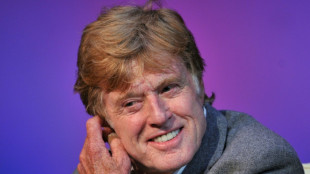
-
 Vuelta protests 'a completely new phenomenon', says Tour de France director
Vuelta protests 'a completely new phenomenon', says Tour de France director
-
Bangladesh beat Afghanistan to stay alive in Asia Cup

-
 Trump extends delay on US TikTok ban until mid-December
Trump extends delay on US TikTok ban until mid-December
-
YouTube ramps up AI tools for video makers

-
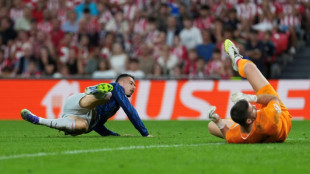 Arsenal subs snatch win in Bilbao Champions League opener
Arsenal subs snatch win in Bilbao Champions League opener
-
Downton Abbey auction of props and costumes smashes estimates
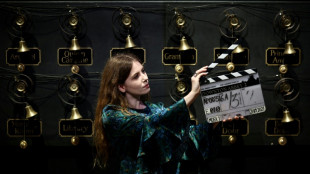
-
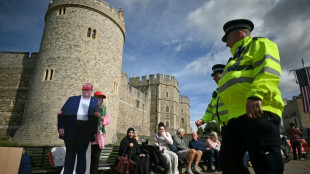 Windsor prepares for global spotlight with Trump state visit
Windsor prepares for global spotlight with Trump state visit
-
Suspect in Charlie Kirk killing charged with murder

-
 France duo out of Women's Rugby World Cup semi-final as bans upheld
France duo out of Women's Rugby World Cup semi-final as bans upheld
-
Simeone backs Atletico to hurt 'extraordinary' Liverpool
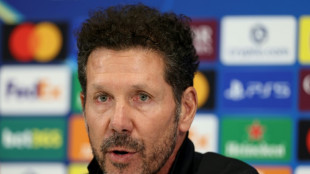
-
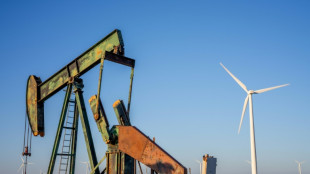 IEA says more oil and gas investment may be needed
IEA says more oil and gas investment may be needed
-
Sabrina Carpenter, Justin Bieber, Karol G to headline Coachella

-
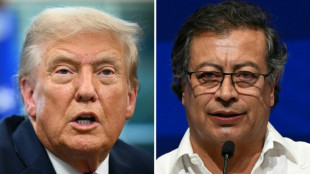 Colombia halts US arms purchases in row over drug fight delisting
Colombia halts US arms purchases in row over drug fight delisting
-
Nestle says chairman Paul Bulcke to step down
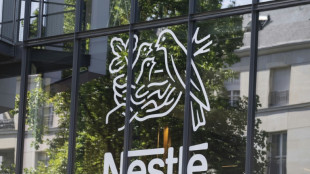
-
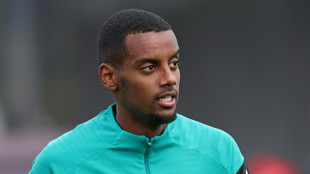 Isak set for Liverpool debut in Atletico Madrid Champions League clash
Isak set for Liverpool debut in Atletico Madrid Champions League clash
-
Malawi votes in economic gloom as two presidents battle for power

-
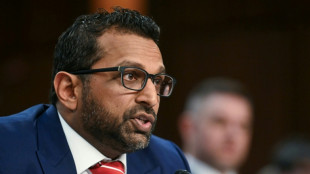 No info in files that Epstein trafficked women to others: FBI chief
No info in files that Epstein trafficked women to others: FBI chief
-
Stocks slip, dollar down as Fed meets on rates
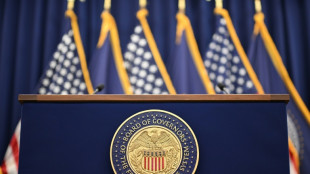
-
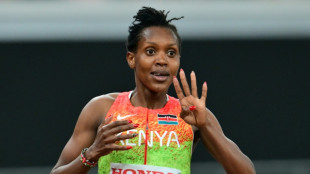 Faith Kipyegon: Supreme Kenyan champion and role model for mothers
Faith Kipyegon: Supreme Kenyan champion and role model for mothers
-
Hollywood giants sue Chinese AI firm over copyright infringement
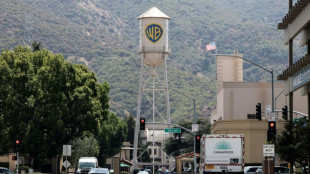
-
 Bayern's Kane keen to rekindle London rivalry against Chelsea
Bayern's Kane keen to rekindle London rivalry against Chelsea
-
Trump sues NYT for $15 bn in latest attack on media

-
 IndyCar reveals 17-race 2026 season with March opening
IndyCar reveals 17-race 2026 season with March opening
-
Trump heads for landmark state visit with 'friend' King Charles
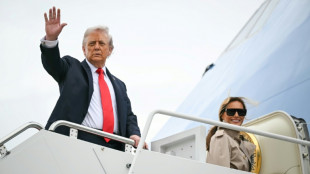
-
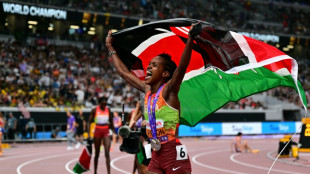 Kipyegon sparkles, Tinch's time away pays off with world gold
Kipyegon sparkles, Tinch's time away pays off with world gold
-
Kerr completes Kiwi world double after Beamish tonic
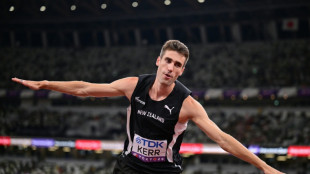
-
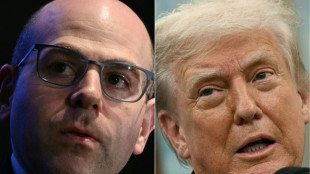 US Fed opens key meeting after Trump aide sworn in as governor
US Fed opens key meeting after Trump aide sworn in as governor
-
Tinch crowns atypical path to top with world hurdles gold
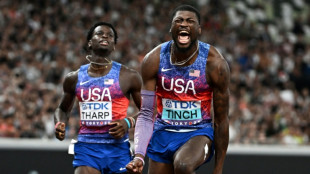
-
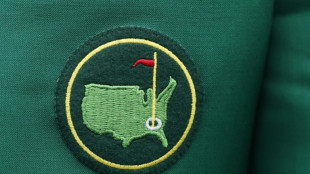 Masters deal with Amazon Prime boosts US TV coverage hours
Masters deal with Amazon Prime boosts US TV coverage hours
-
Thyssenkrupp says India's Jindal Steel makes bid for steel business
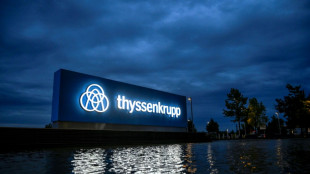
-
 Germans turn to health apps as insurers foot the bill
Germans turn to health apps as insurers foot the bill
-
Robert Redford, Hollywood's golden boy with a Midas touch
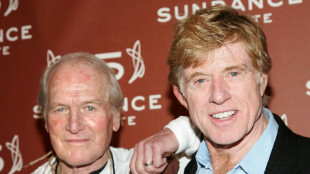
-
 US retail sales beat expectations in August despite tariffs
US retail sales beat expectations in August despite tariffs
-
New Zealand's Kerr wins world men's high jump gold
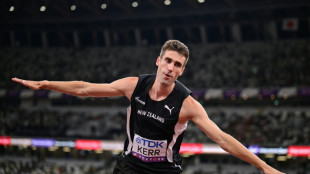
-
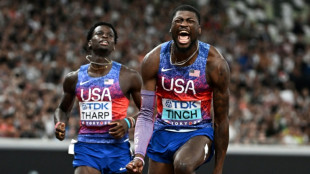 American Cordell Tinch wins world 110m hurdles gold
American Cordell Tinch wins world 110m hurdles gold
-
Kenya's Kipyegon wins unprecedented fourth women's world 1,500m title
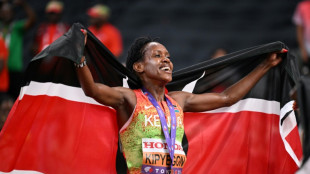
-
 Suspect in Kirk killing to be charged in US court
Suspect in Kirk killing to be charged in US court
-
Cinema legend Robert Redford dead at 89
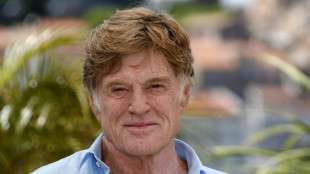
-
 Europe slow to match economic rivals US, China: Draghi
Europe slow to match economic rivals US, China: Draghi
-
Rugby World Cup chiefs defend handling of Berthoumieu biting incident

-
 'Like failing a math test': US teen Lutkenhaus schooled at worlds
'Like failing a math test': US teen Lutkenhaus schooled at worlds
-
Philippines says one injured in China Coast Guard water cannon attack
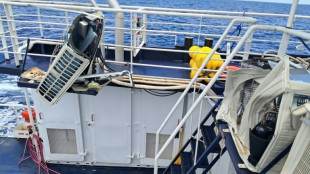
-
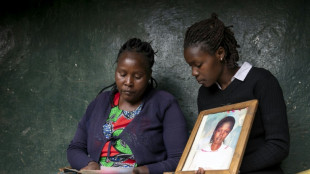 Kenya court seeks UK citizen's arrest over young mother's murder
Kenya court seeks UK citizen's arrest over young mother's murder
-
Malawi votes for a new president as economic crisis bites

-
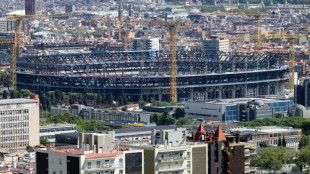 Barca to stay at Johan Cruyff stadium for Getafe clash
Barca to stay at Johan Cruyff stadium for Getafe clash
-
'We pulled the children out in pieces': Israel pummels Gaza City

-
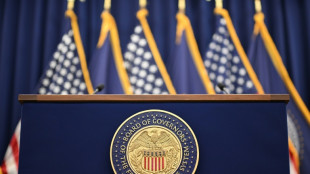 Stocks diverge, dollar down as Fed meets on rates
Stocks diverge, dollar down as Fed meets on rates
-
Zandvoort, Singapore to host F1 sprints for first time in 2026
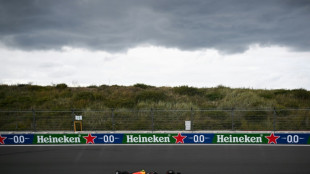

What's in the EU's two-trillion-euro budget bazooka?
EU members got their first chance on Friday to debate the bloc's two-trillion-euro budget bazooka, laying bare divisions among the 27 capitals over the spending plans for 2028-2034.
Seeking to balance the European Union's key priorities, Brussels wants the next long-term budget to bolster the bloc's economy, support farmers and plough billions more into defence -- all while paying off its debts.
The battle lines are now drawn for two years of fraught negotiations between the EU parliament and member states -- which provide the lion's share of funds along with tax-based resources and custom duties.
Don't come to us for more money, EU capitals have already told the European Commission.
"In a time where national budgets are under great economic pressure, the answer can't be more money and a bigger budget," Sweden's EU Minister Jessica Rosencrantz said.
Here are the key parts of the spending proposals:
- Competitiveness fund -
Beyond security, the EU's biggest priority is to bolster its competitiveness and help European businesses catch up with US and Chinese rivals.
The author of a seminal report last year, Mario Draghi, delivered hard truths: to see real change, the EU needs yearly investment of at least 750-800 billion euros.
Without stretching that far, commission chief Ursula Von der Leyen has proposed a 451-billion-euro competitiveness fund that will focus on the clean and digital transition, health as well as defence and space.
Brussels also proposed establishing a fund of up to 100 billion euros for Ukraine's reconstruction.
- Agriculture -
Von der Leyen is steeled for a fight with the bloc's farmers over a proposed overhaul of the EU's massive subsidies scheme known as the common agricultural policy (CAP).
At least 300 billion euros would be dedicated to support farmers in the next budget, but some funding would move to other spending columns.
The sector fears this will mean less aid while France, whose farmers are some of CAP's biggest beneficiaries, accused the commission of "turning its back" on agriculture.
Brussels, however, stresses the CAP will still have its own rules and earmarked financial resources, especially direct aid to farmers.
- Climate -
With all the focus on security and competition, there were fears the environment would be sidelined in the budget -- despite heatwaves, forest fires and flooding caused by human-caused climate change wreaking havoc across Europe in recent years.
The commission said 35 percent of the overall budget -- around 650 billion euros -- would be dedicated to the climate and achieving the EU's environmental aims.
Some environment groups slammed the target as vague, while the World Wildlife Fund warned it risked "defunding vital nature and climate action" if, as planned, a key environment programme is absorbed into the larger competitiveness fund.
Climate think tank E3G however saw the 35-percent target as a sign of commitment to the green ambitions of the commission's previous 2019-2024 term, while insisting on the need for sufficient funds to pursue its climate goals.
- Rule of law -
The EU proposes that future funding will be more closely linked to democratic values, telling member states: protect the judiciary's independence and maintain freedoms if you want money.
"No EU money without the respect of rule of law," budget chief Piotr Serafin said.
Hungary, which has often been the target of the EU's ire and of infringement proceedings for rule-of-law violations, was not happy.
"It's a tool for political and ideological pressuring," said the country's EU minister, Janos Boka, calling the notion a "non-starter" for Budapest.
- Beyond Europe -
The EU's eyes are not only on itself.
Brussels proposed a more than 200-billion-euro fund for investments and aid abroad -- welcomed by humanitarian groups after the deep cuts to US foreign aid under President Donald Trump.
This also includes the EU's efforts to protect its borders through stepped-up partnerships with countries in the Middle East and North Africa, despite criticism this can amount to throwing money at authoritarian countries with poor human rights records.
K.Sutter--VB
